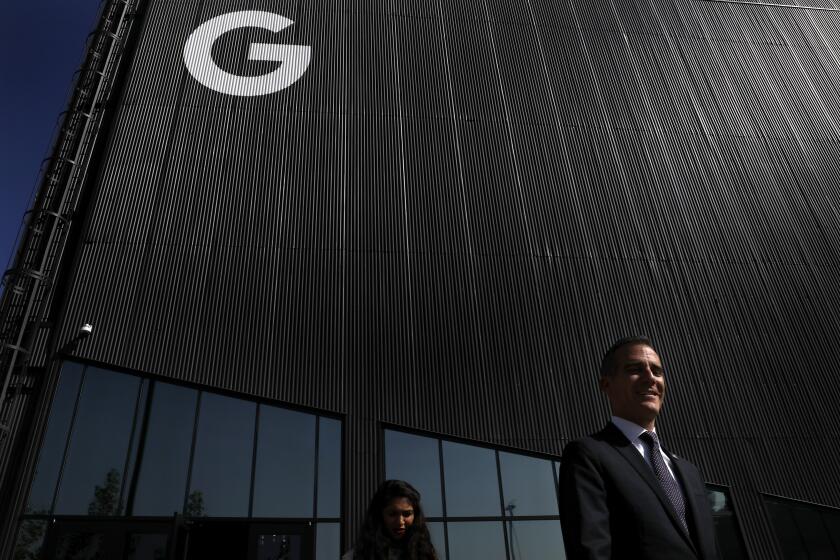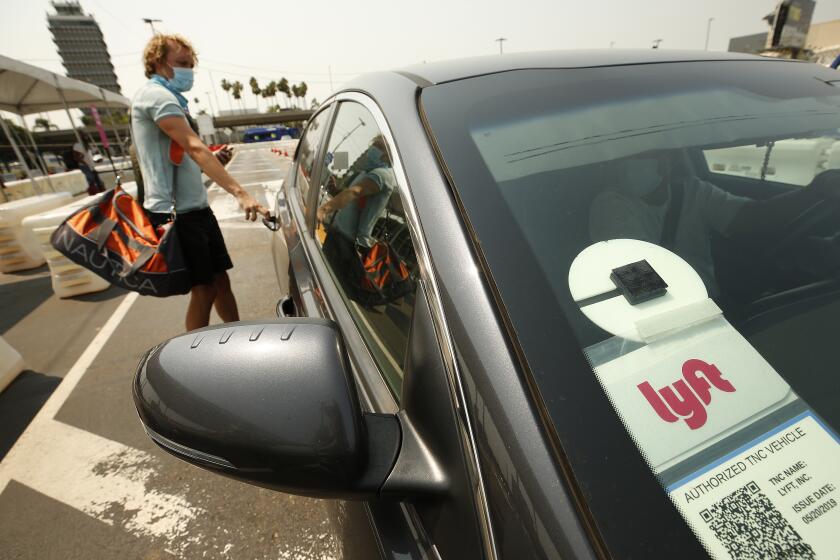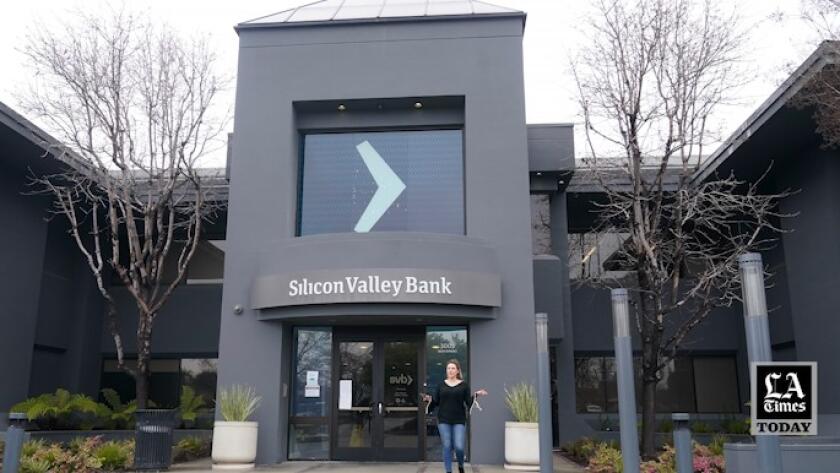Column: Silicon Valley Bank broke. Silicon Valley is broken

- Share via
There have been a lot of reckonings for Silicon Valley of late — the falls from grace of once-mighty founders, the collapse of the crypto industry and mass layoffs across the tech sector, to name a few. But it’s the stunning failure of Silicon Valley Bank, the region’s go-to regular old bank and one of the largest in the nation, that should finally force us to reconsider — and reform — how our tech industry operates.
There seem to be at least two big reasons that the “startup bank” failed. First, the massive deposits on its books were bound up in low-interest securities, and they came from venture capital-backed companies that were burning through cash faster than expected, just as VC funding in general slowed. Second, it and a great many of its startup clients were beholden to a relatively small cadre of venture capitalists, and so SVB was uniquely exposed to a run on the bank should those venture capitalists decide to pull their funds at the same time.
This is what seems to have happened.
Rising interest rates undermined the bank’s balance sheet, it didn’t have enough on hand to guarantee withdrawals of funds, and an attempt at raising capital failed — so prominent venture capitalists such as Peter Thiel and his Founder’s Fund advised their companies to get out. Word spread, and soon everyone else was doing the same, to the tune of $42 billion in attempted withdrawals.
Increasingly offering products untethered to the average consumer’s needs, the tech industry has been dwelling in La La Land. Its real-world expansion into L.A. is no coincidence.
As many have pointed out, the bank should probably have seen trouble brewing as the Fed hiked interest rates and made its intention of continuing to do so clear. And the bank should have communicated its strategy to account holders after a crisis seemed imminent, et cetera. But even looking beyond the recent sequence of events, it should be obvious the “backbone” of Silicon Valley’s startup ecosystem has long been broken.
If SVB was vulnerable to a rapid run-up in interest rates, it’s because it catered to an industry where showering unproven companies with cash is the norm, with venture capitalists competing among themselves to see who can make it rain the hardest. It’s an inherently haphazard system, one that breeds recklessness right into its foundation. It’s a little surprising, in fact, that it took this long for it to break down under the weight of all that hard-to-deploy capital.
The “build first, ask questions later” philosophy, the “move fast and break things” ethos; the mandate to grow your platform at all costs then try to figure out ways to manage it, long after the Nazis have moved in; the unicorn-or-bust mentality that says nothing is worthwhile if the market cannot scale to world domination; these are all byproducts of a system that starts with a venture capital-led model of developing technology.
Venture capitalists make their money by betting on lots of companies in the hope that one becomes the next billion-dollar success — with investments at that scale, nothing else is worth their while. So you have thousands of companies with young founders who suddenly have more money than royalty, tasked with turning that into more money than God.
The seemingly random firing of drivers is one way ride-hail companies keep workers powerless. Can’t they bear the cost of humane engagement?
More often than not, they park their new haul in SVB. As such, the vast majority of funds held by SVB are not FDIC-guaranteed, because each deposit is insured up to $250,000 — more than 87%, according to the bank’s latest financial disclosures. The typical startup has millions tied up there.
And it’s unclear if they’ll see it again. SVB’s assets are being shopped around, and while some are optimistic it will find a buyer and that its depositors will be made whole, that’s far from certain. If it comes up short, it will be a remarkable indictment of what Silicon Valley’s financiers truly value.
Remember, all it took was Elon Musk to snap his fingers and call some venture capitalists and JPMorgan, and he had a deal to buy Twitter for the overinflated price of $44 billion. SVB is the economic foundation for the region’s countless startups and tech companies. According to the New York Times, as of 2015, “it serves 65 percent of all existing start-ups and many of the most prominent venture capital firms.” If it can’t find a buyer, whether in a larger bank or regional investors, or a conglomeration thereof, it will be rather telling about where the priorities lie.
Because if SVB goes belly up, it’s the aspiring founders and rank-and-file tech workers who will get hurt the most. Companies banked with SVB are missing payroll because of the crash. People who are not venture capitalists are not getting paid for their work, and people who have been working around the clock on a dream they believe in (even if they do also believe it may make them more money than God) are losing their companies.
As for the venture capitalists? Sorry, they’ll have to make it quick — they’re in Aspen, almost to the top of the ski lift.
Now, imagine a model where an investor that wanted to put money into a technology company actually assessed the risk of doing so, or where founders were made to prove their technologies were marketable before they received a Series A of $100 million or whatever. Imagine a world where a handful of dudes were not able to decide among themselves whether an idea was suddenly worth the gross domestic product of a small nation state, or kill off an entire industry without a sustainable replacement — or panic one another into toppling a major financial institution. Utopian, I know!
It’s high time to find ways to restrict these incredible and reckless flows of capital, or at least tax them proportionately, to bring the tech sector back to Earth.
Because the alternative is obvious — tech products developed and unleashed recklessly, with a perpetual risk of full-blown collapse that affects everyone whose address is not on Sand Hill Road.
- Share via
Watch L.A. Times Today at 7 p.m. on Spectrum News 1 on Channel 1 or live stream on the Spectrum News App. Palos Verdes Peninsula and Orange County viewers can watch on Cox Systems on channel 99.










